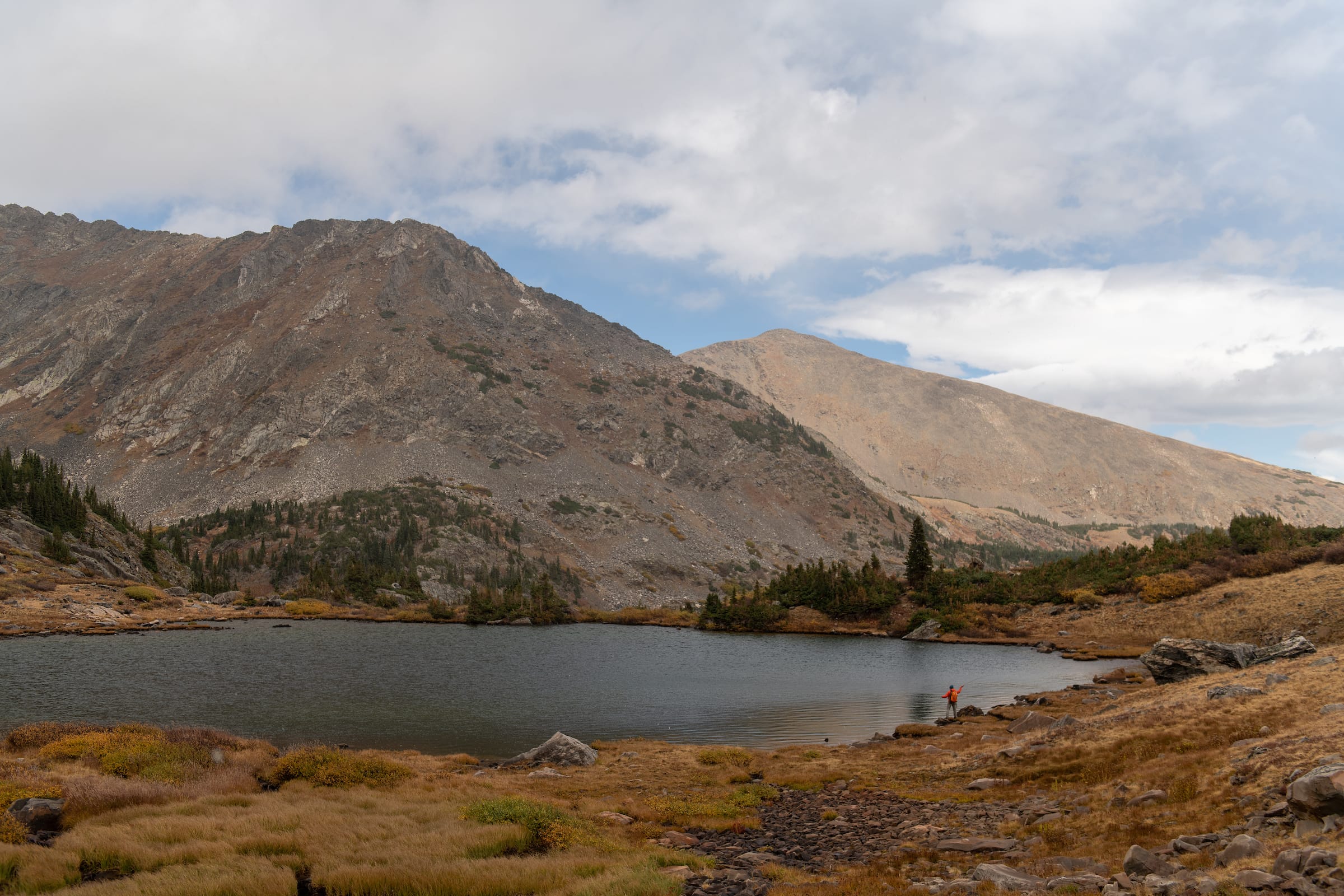New leadership and investments in people reflect growing federal partnerships and project funding across the region.
Last week, TU announced a series of new investments in its people to accommodate the growing number of partnerships across the Rocky Mountains. Over the last decade, TU has secured roughly $133 million in funding partnerships to initiate and build more than 300 projects across the states of Colorado, Utah, Wyoming, Montana, New Mexico, and Arizona. To reflect this growth, TU is synchronizing staffing and elevating key leaders to prioritize regional, statewide and local priorities across the six states. TU’s investments will allow it to advance an ambitious conservation agenda across the Rocky Mountains, including longstanding water policy priorities and federal lands protection campaigns.
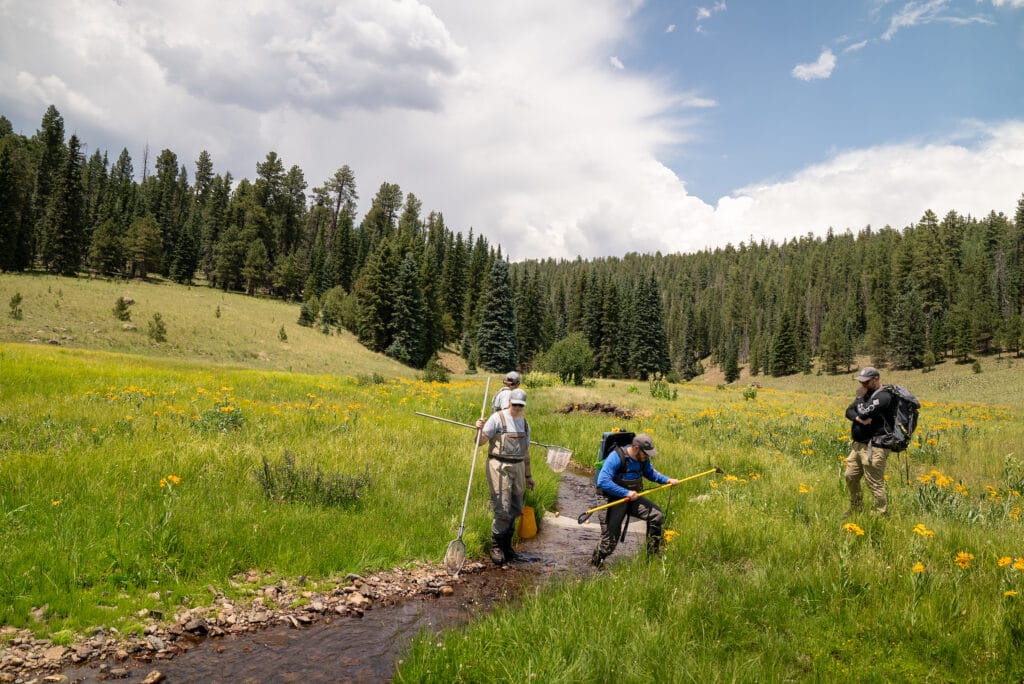
“People care about the places they live, love and fish,” said Chris Wood, president and CEO of TU. “We want our organization to reflect that so we can most effectively engage the hundreds of thousands of people who work to care for and recover their lands and waters.”
Since 2022, TU has also secured more than $100 million in federal partnerships across the nation from the BIL and IRA with agencies such as the U.S. Forest Service (USFS), Bureau of Land Management (BLM), U.S. Fish and Wildlife Service (USFWS), and the National Oceanic and Atmospheric Administration (NOAA). This funding has empowered TU to realign and scale up its workforce.
“With significant conservation funding made available through the Bipartisan Infrastructure Law (BIL) and Inflation Reduction Act (IRA), Trout Unlimited is well-positioned to advance a scope of work that will build new infrastructure, mitigate the impacts of climate change, improve and expand native trout habitat, enhance wildfire prevention and recovery efforts, restore the Colorado River Basin, and continue to set the standard for how motivated staff and volunteers can improve our public lands and waters,” said Emily Olsen, vice president of the newly formed Rocky Mountain Region. “By investing in leadership and promoting employees with longstanding relationships in their respective communities, we’ll continue to serve as a highly effective, entrepreneurial and locally focused organization.”
As it relates to the Rocky Mountains specifically, the leaders listed below were selected to oversee staff, projects, federal funding and policy and advocacy campaigns based on their successful track records in the organization and across the conservation community.
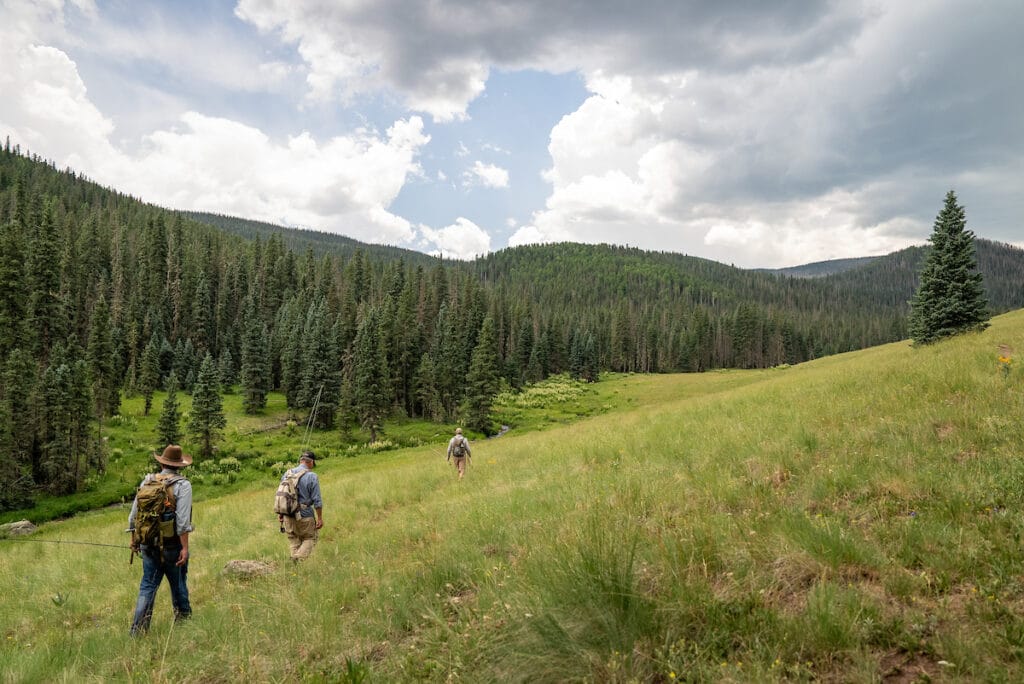
Colorado
With more than 15 staff and 32 projects totaling more than $46.5 million in federal funding – in addition to the recent 8-year, $10 million 2020 wildfire recovery partnership with the USFS and 5-year, $8.9 million partnership with the BLM for western watershed restoration – a new structure of leadership was needed to streamline TU’s operations, advocacy and conservation work.
Formerly the Director of TU’s Colorado Water Program – which protects and restores Colorado’s rivers and creeks to sustain healthy coldwater fisheries – Drew Peternell was selected to be the new Colorado state director due to his strong track record of building and leading TU’s growing Colorado team. He has decades of experience overseeing conservation projects and working closely with farmers and ranchers, state and federal agencies, water rights holders, landowners, and TU staff and volunteers to advance trout habitat, recreation, agriculture and water policy initiatives.
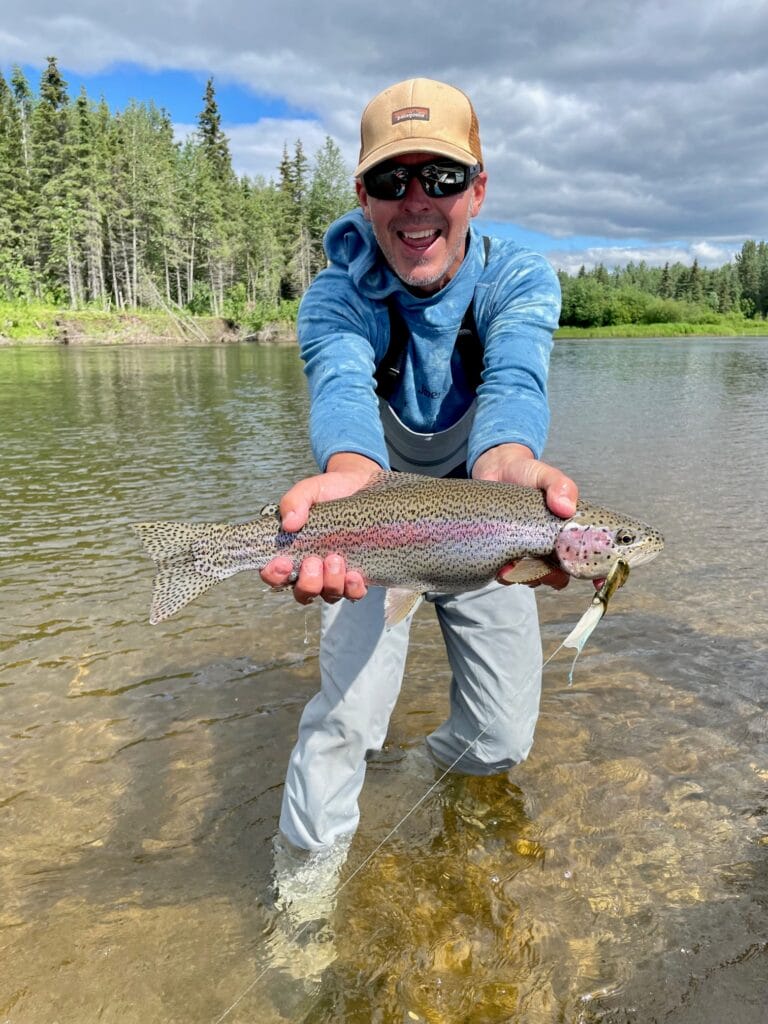
A well-respected attorney who has argued on TU’s behalf before the Colorado Supreme Court, Peternell has handled significant cases benefiting Colorado’s trout populations and the broader Colorado River Basin. Peternell represented TU in a series of cases that resulted in stream flow water rights for the Black Canyon of the Gunnison National Park and several cases prohibiting unneeded municipal water diversions. He also served on the boards of the Central Colorado Conservancy, the FIBArk Whitewater Festival and the Arkansas River Basin Roundtable. Peternell holds a B.A. in political science from Vanderbilt University and a J.D. and Certificate of Specialization in Environmental Law from the University of California, Berkeley. He lives in Steamboat Springs with his wife and two daughters.
In his new role, Peternell will work closely with David Nickum, executive director of the state council, Colorado Trout Unlimited.
Additionally, as part of the restructuring, Dr. Sara Porterfield is leading TU’s water policy work as western water policy advisor given her depth of policy and historical expertise on western water rights and the Colorado River Basin as a whole. Porterfield has been integral to TU’s policymaking, outreach and coalition management for a variety of Colorado River Basin issues, in addition to managing multiple internal programs for several years. She will advise multiple state directors on regional and federal water policy issues in addition to representing TU among myriad coalitions across the West. Porterfield holds a PhD in environmental history from the University of Colorado Boulder and a B.A. in history from Lewis and Clark College.
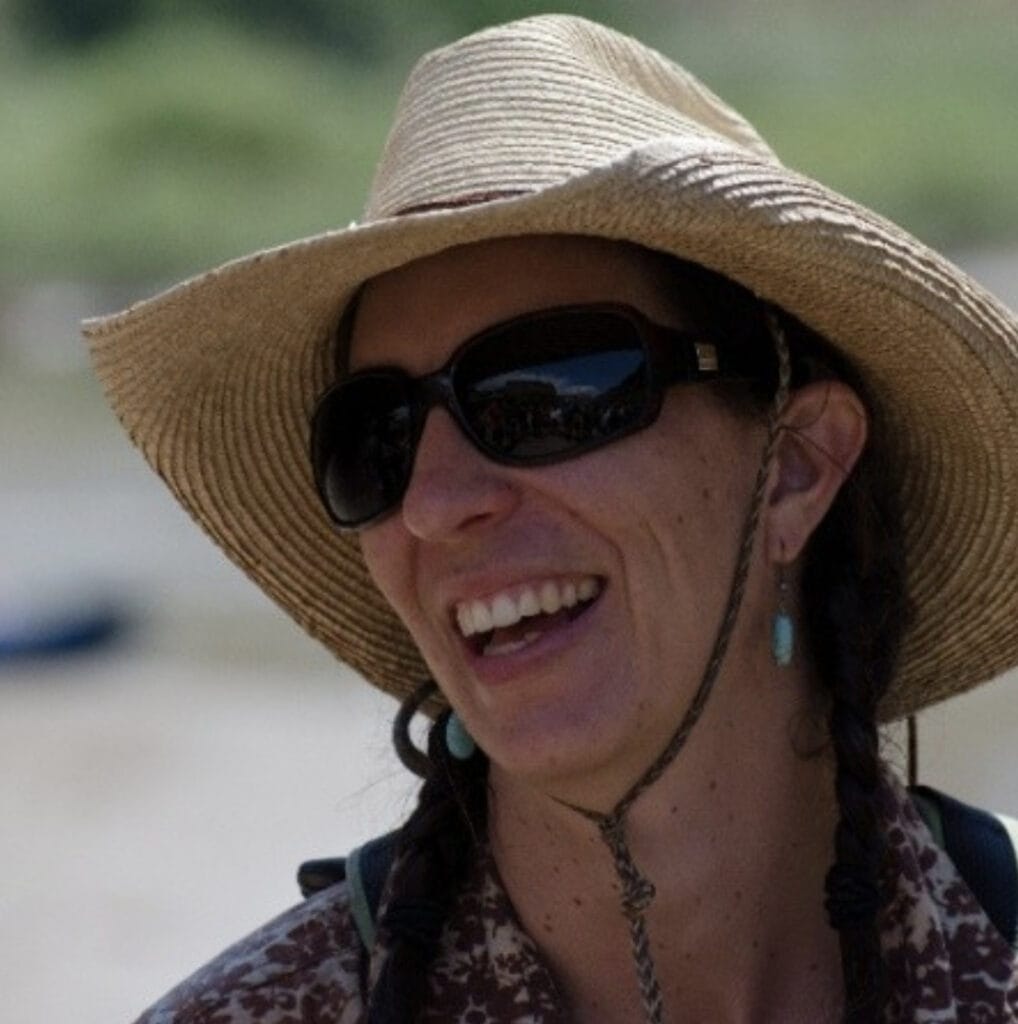
Jason Willis, P.E., has taken on the role of western abandoned mine land (AML) program director under the new restructure to build in-house engineering capacity on AML projects across Western states while developing new AML programs in states affected by historic hard-rock mining. His full-time tenure with TU began in October 2012, where he focused on reclamation of mining impacted areas, stream channel morphology and river dynamics, soil and water chemistry, and construction management/oversight. Over the years, he has taken on a larger range of projects in Utah, Idaho, and Wyoming in addition to Colorado work. These projects have allowed Jason to educate partners about the complex nature of AML cleanups from both technical and legal perspectives. Jason’s education experience includes a B.S. in plastics engineering technology from Penn State Behrend and an M.S. in civil and environmental engineering from the University of Pittsburgh. He is also a licensed engineer with the State of Colorado.
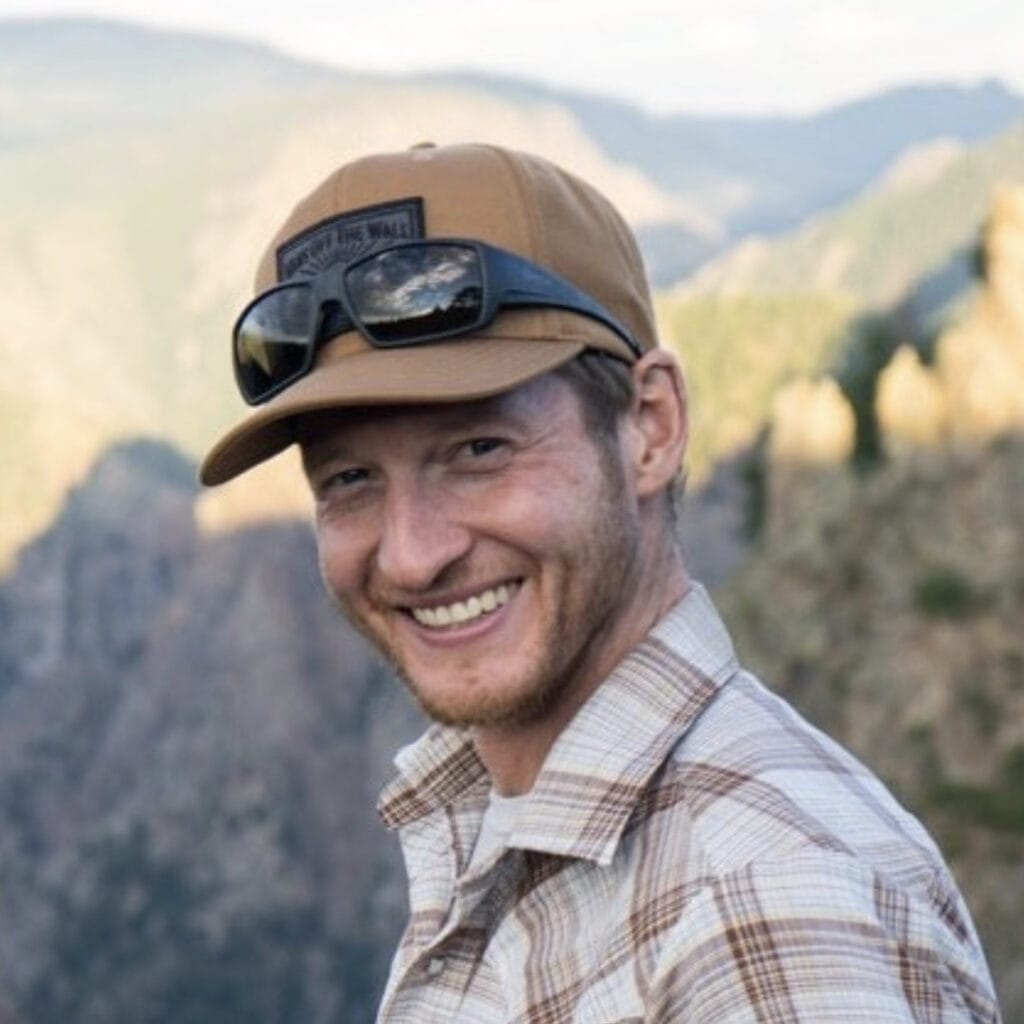
Utah
With 6 staff and 40 projects totaling nearly $24 million in federal funding since 2015 in the Colorado River Basin alone – in addition to roughly $10 million in project funding for the Great Salt Lake watershed, as well – the Beehive State has been as busy as their namesake.
Working for TU since 2015, Jordan Nielson has been named Utah state director after rising through the ranks and completing more than 80 projects in the Colorado River Basin and Great Salt Lake watersheds. Nielson also sits on the $40 million Great Salt Lake Watershed Enhancement Trust that was formed in 2022 by the state legislature to work with water rights holders across the watershed to protect, lease and/or acquire portions of their water supply to keep it for in-stream needs and restore the watershed’s habitat. Nielson has developed innovative projects and partnerships with local communities, state and federal agencies, Tribes, and corporate partners and has advanced TU’s pragmatic approach to conservation to increase the pace and scale of conservation across Utah. He also recently led the $3.5 million restoration of the Price River, which was one of the first projects completed in the country using BIL/IRA funding.
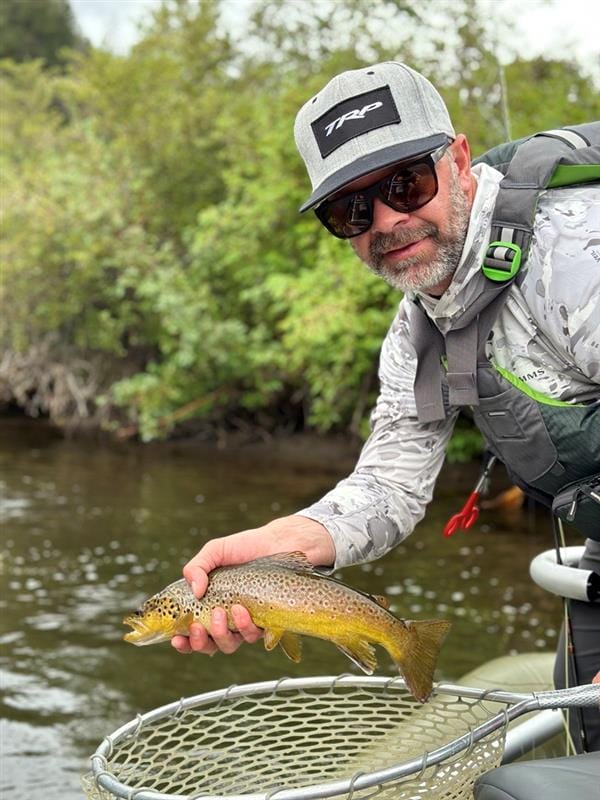
Nielsen received his undergraduate degree at Brigham Young University – Idaho before pursuing a master’s degree in fisheries resources at the University of Idaho. He lives in Spanish Fork with his family and coaches youth mountain biking across the region.
Jim DeRito will also continue to oversee multi-state efforts in the Bear River Watershed across Utah, Wyoming and Idaho as the Bear River watershed director. DeRito has a total of 28 years of experience working in fisheries and hydrology in the Intermountain West and is skilled in working with ranchers, water users and state and federal agencies. He is also active with the American Fisheries Society and holds a M.S. focused on fisheries management from Montana State University-Bozeman.
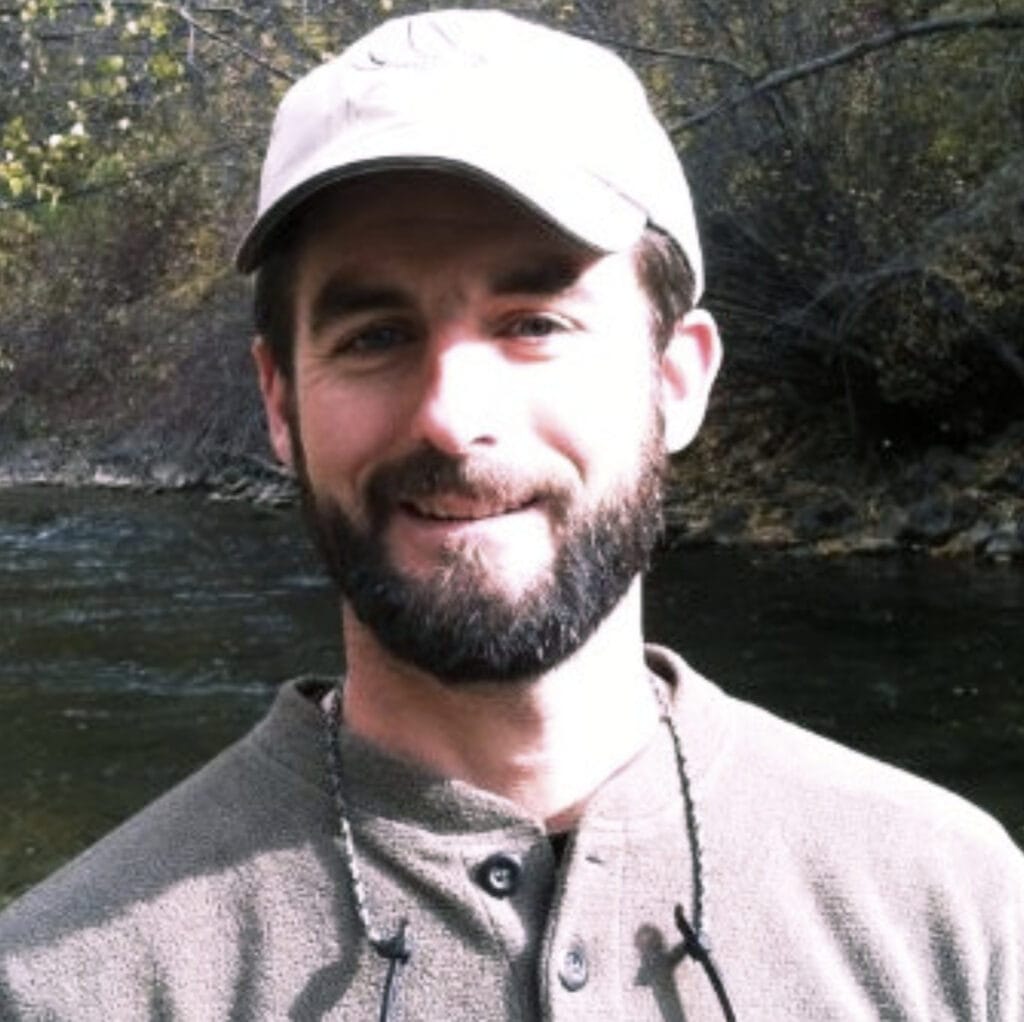
Wyoming
Leslie Steen has successfully led TU’s Snake River Headwaters Initiative since 2016 and has secured new funding streams to grow TU’s programs and staff across Wyoming. In total, the Snake River Headwaters Initiative has taken on 10 projects worth $6,654,000. Thirty-three miles of the river have been reconnected by these efforts and 10 have been restored. Fifteen hundred students have also been educated on this initiative.
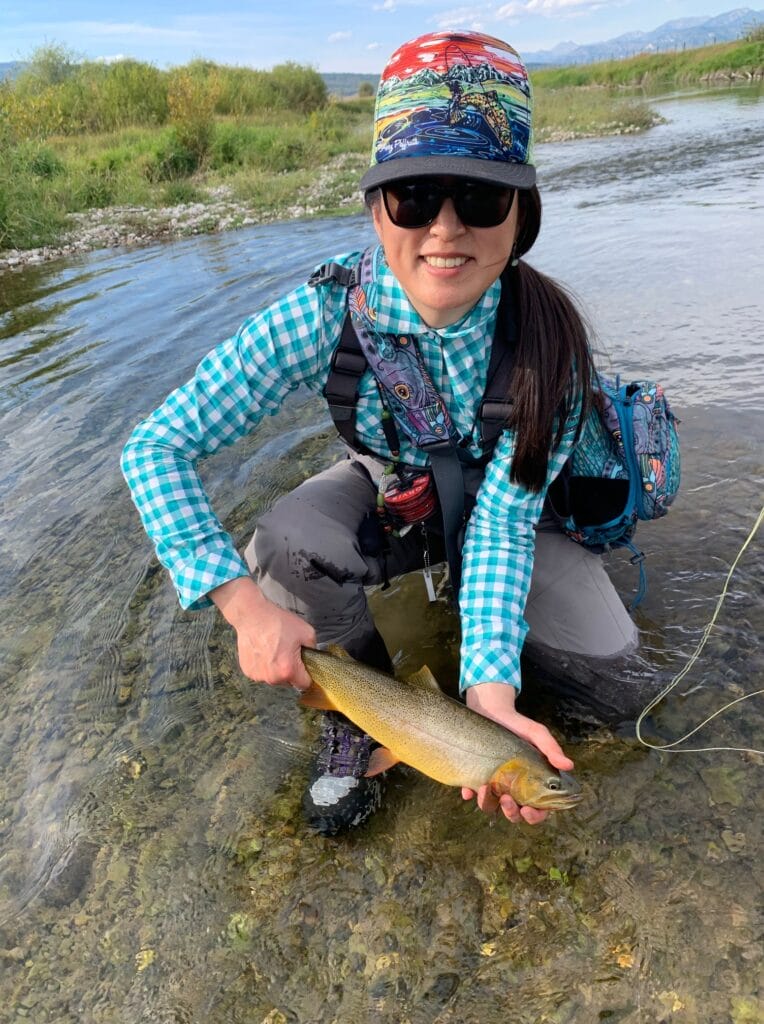
Due to this success, she has been named Wyoming state director. In her previous role as Northwest Wyoming program director, Steen forged significant partnerships with a broad suite of agencies, nonprofits and private landowners to advance on-the-ground stream restoration and reconnection projects for native trout. She has also convened other collaborative watershed and community-driven efforts and increased philanthropic support, youth education programming, communications and grassroots engagement. Steen holds a B.A. in environmental biology from Columbia University and an M.S. in fish and wildlife management from Montana State University. Steen has lived in Jackson Hole since 2007 and enjoys spending time in the Tetons and on the Snake River with her husband Scott and son Oliver. She serves as Vice President of the board of the Jackson Hole Wildlife Foundation, co-director of the Mountains of Color Film Fest and is a member of the Jackson Hole DEI Collective.
Collectively, Wyoming has 8 staff completing 112 projects and 44 water transactions in the past decade – totaling over $28 million. Cory Toye will continue his efforts as the Wyoming water policy director to support Steen in managing and growing the sheer number of projects benefiting native trout and some of the best fishing rivers in the West found in the Equality State, as well as working closely with the Wyoming state council.
Montana
Employing 11 staff – with an additional six staff working for MTU – TU has reconnected and restored more than 700 miles of rivers and streams and improved streamflow in 36 streams and rivers across Montana. Additionally, TU has implemented 110 projects worth more than $22 million over the past decade to protect and restore wild and native trout populations and their watersheds in Montana.
As such, Casey Hackathorn has been named Montana state director after leading TU’s Upper Clark Fork program since 2011 while working to reconnect tributaries, reclaim abandoned mine sites, conserve water and restore riparian habitat in western Montana. Hackathorn has also worked closely to improve Bull trout restoration in the state.
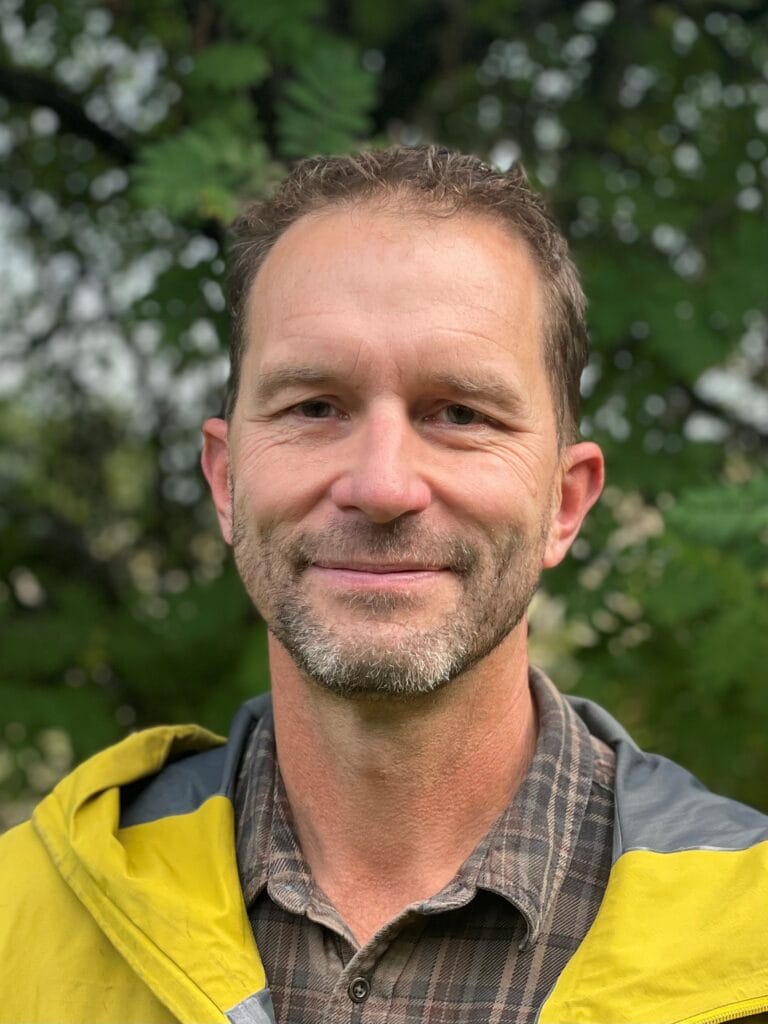
Prior to joining TU, Hackathorn worked on rivers and in mountains across the West as an outfitter, guide and wilderness instructor. He started his natural resource career in the Air Force while managing environmental cleanup projects at Department of Defense facilities around the country. He also holds a B.S. in civil engineering from the United States Air Force Academy and has lived in Missoula since 1999. He enjoys exploring Montana rivers, prairies and mountains with his wife Tina, and Roxy, their golden retriever.
In his new role, Hackathorn will work closely with David Brooks, Executive Director of the state council, Montana Trout Unlimited.
Southwest Program
TU is making three new leadership appointments across the Southwest to elevate its growing restoration portfolio, as well as state and federal advocacy efforts, across the region.
Kevin Terry has been named Southwest program director after leading our work across the Upper Rio Grande region in southern Colorado and northern New Mexico since 2013. Terry has pioneered TU’s innovative Winter Flow program since 2014 and has also developed and grown a portfolio of restoration and fisheries projects across New Mexico. Previously, Terry spent seven years as the fisheries program manager with the Jicarilla Apache Nation and also worked on the range-wide Rio Grande cutthroat trout conservation team over the last 17 years. He was chosen to oversee TU’s rapid growth in New Mexico and Arizona, where he has longstanding relationships with existing staff and partner organizations. Terry holds a B.S. in fisheries science from Oregon State University.
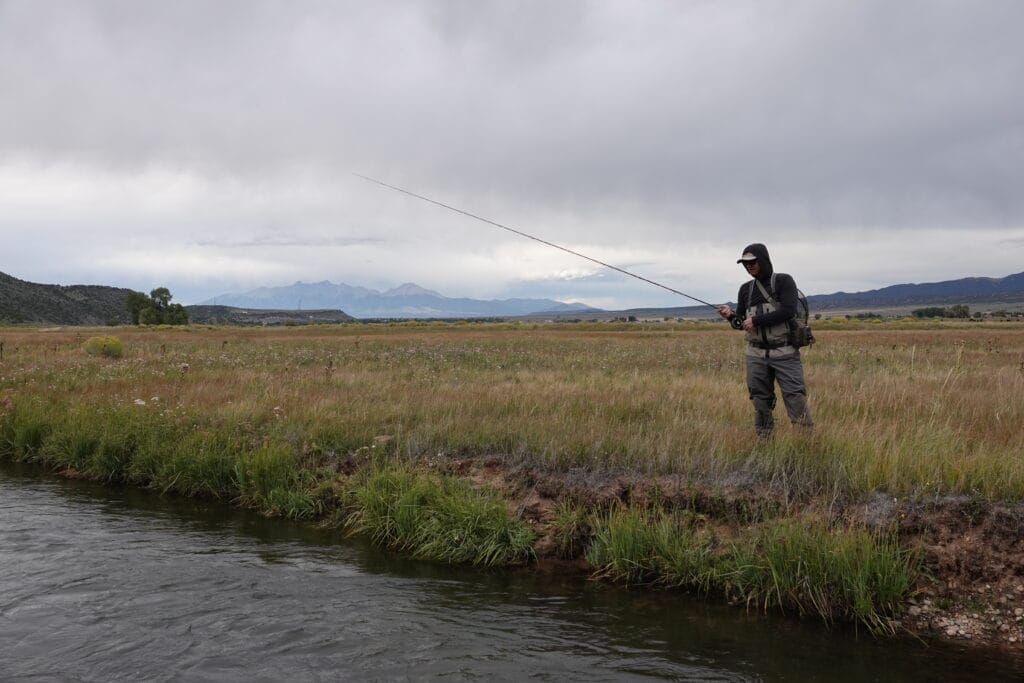
With more than ten staff across the two states, TU continues to grow its presence, projects and staff to accomplish its conservation goals.
Dan Roper will lead TU’s growing staff and day-to-day operations in New Mexico as state lead after spearheading TU’s efforts to establish the state’s first permanent source of funding for conservation and habitat restoration programs, the Land of Enchantment Legacy Fund.

Based outside of Santa Fe, Roper has led TU’s state policy and advocacy efforts since joining TU in 2019. Dan has a Master of public policy (MPP) degree from Oregon State University and legislative experience in three western states and has worked on natural resource issues for state and federal agencies. Since joining TU, he’s been instrumental in growing TU’s influence at the state-level and establishing the organization as a leading voice for healthy rivers and coldwater fisheries in New Mexico. Dan lives his wife and two children. He enjoys time along the trails and on the water and tends a big garden fed by New Mexico’s centuries-old acequia system.
Collectively, New Mexico has more than 20 projects totaling nearly $2 million in federal and state funding.
In Arizona, Nathan Rees will serve as state lead to advance TU’s federal land protection campaigns and restoration priorities. Rees worked collaboratively with Arizona’s congressional delegation, the Grand Canyon Tribal Council and partner organizations to successfully protect nearly 1 million acres of greater Grand Canyon region from future uranium mining after President Biden established Baaj Nwaavjo I’tah Kukveni – Ancestral Footprints of the Grand Canyon National Monument in August 2023.
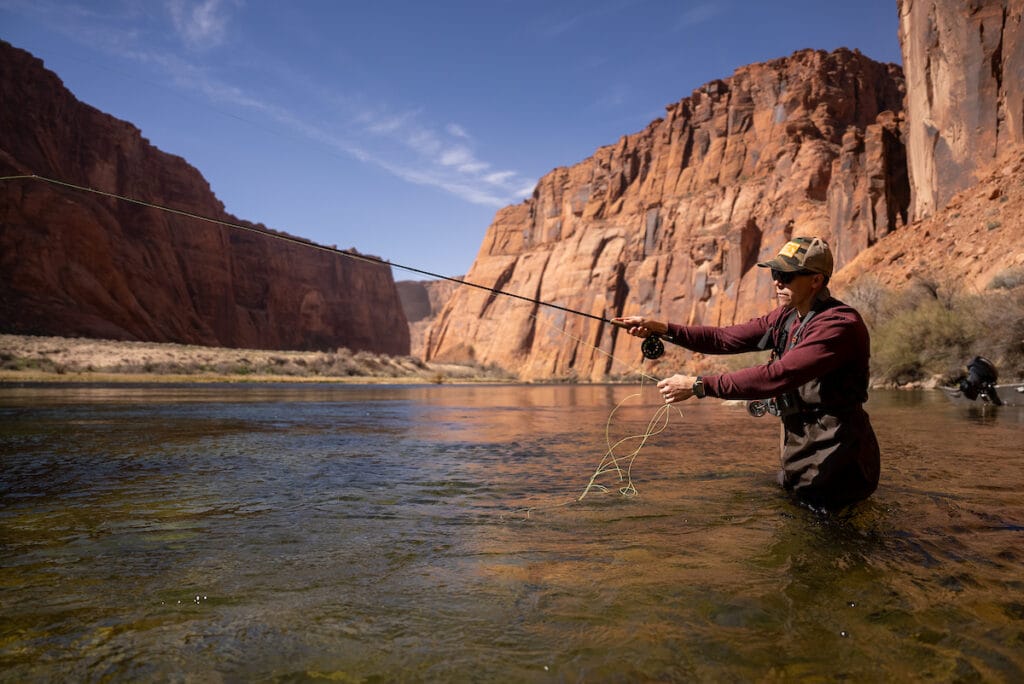
Rees will oversee multiple staff focused on community engagement, stream restoration projects and state/ federal public land policy. Rees has developed and implemented winning strategies on numerous Arizona place-based campaigns with diverse partners. He also has extensive experience working with federal and state agencies to identify and implement stream restoration projects, forest management plans and native trout monitoring and reintroduction in Arizona. Rees holds a B.A. in Business Sustainability from Arizona State University.
Ramping up our hiring and expanding our footprint across the state for the first time, Rees will also oversee six stream restoration projects in the White Mountains and Mogollon Rim region worth nearly $1 million in funding.
Collectively, we believe this new leadership structure and investments will allow TU to advance an ambitious conservation agenda across the Rocky Mountains, including longstanding water policy priorities and federal lands protection campaigns. We look forward to working with our members and chapters under this news structure across the region and expect to be able to provide more localized updates to you soon.



